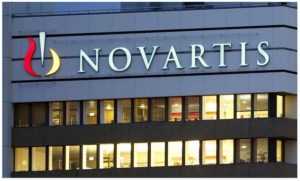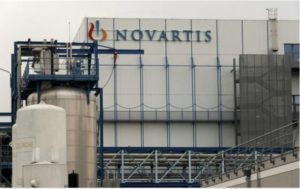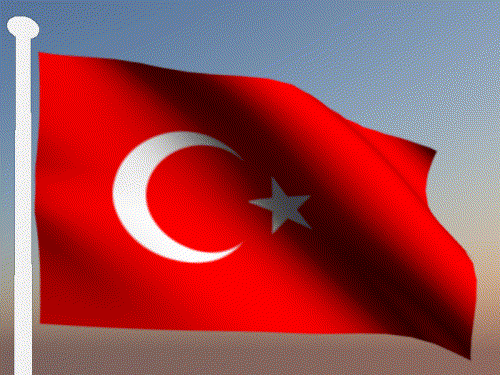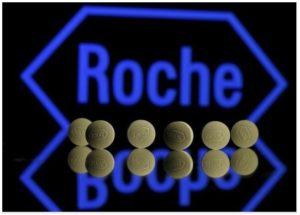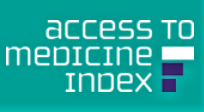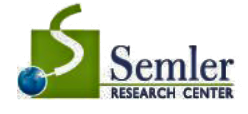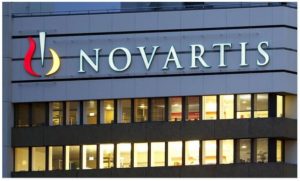- Sandoz to donate up to $10 million in generics to Americares (drugstorenews.com)
Sandoz...announced that it would be donating up to $10 million in generic medicines annually to Americares, an organization that responds to those affected by poverty or disaster with health programs, medicine and medical supplies. The initial donation will include more than 25 Sandoz products for treatment of infections, cardiovascular condition, eyecare, skin conditions and musculoskeletal pain…Limited access to healthcare poses a significant barrier to long-term social and economic development around the world...Sandoz has partnered with Americares since 1989 and Novartis and Sandoz have donated more than $230 million worth of medicine to the organization since then...
- Under drug-cost attack, Big Pharma CEOs raise the value-based pricing flag (fiercepharma.com)
Smart pharma CEOs are getting ahead of the drug pricing argument. Rather than getting in the trenches to defend their price tags, they’re flanking the fight by talking up value-based payer deals...Novartis chief Joe Jimenez and Amgen CEO Robert Bradway...have spoken out publicly about pegging drug costs to their results. They’re veterans of the practice--Novartis has performance-based contracts on its heart failure med Entresto, for one, as does Amgen on its PCSK9 cholesterol-fighter Repatha--so they can already claim to be part of the spending solution…the entire pharma industry needs to move to value-based models that focus on outcomes, not per-unit pricing...Jimenez actually paints pharma as a potential standard-bearer for healthcare spending in general...We believe in the efficacy of our products, and by collaborating with payers on solutions for reimbursement, we hope to help start a shift toward value pricing in the healthcare system...We want to be rewarded for the tangible outcomes our products provide patients, not for simply selling pills...
- Another big insurer will pay for key drugs based on patient outcomes (statnews.com)
Yet another health plan is aggressively pursuing deals with drug makers based on patient outcomes...Harvard Pilgrim Health Care...has reached agreements with Novartis and Eli Lilly to calibrate payments for two of their most important medicines...In one deal, the insurer will receive a discount from Novartis if its new Entresto (sacubitril/valsartan) treatment for congestive heart failure does not yield a specified drop in hospitalizations. In the other, Harvard Pilgrim agreed to accept a lower rebate from Lilly if its Trulicity (dulaglutide) diabetes drug lowers hemoglobin levels...Paying for value for drugs is an obvious way to go...The pharmaceutical industry is recognizing greater potential for regulation [on pricing], so I think they’re thinking more creatively and are more open-minded about how to develop contracts where cost is somehow related to outcome...The move toward so-called value-based contracting reflects accelerating costs for prescription drugs...It’s not rocket science to think about paying for value...Unfortunately, the pharmaceutical companies have been slow to adopt this...
- Novartis splits drugs business into two, pharma chief to leave (reuters.com)
Novartis is splitting its pharmaceuticals division into two business units, one focused on cancer and the second on other drugs, while switching out its current pharma head in the second high-profile management reshuffle this year...David Epstein, the American head of Novartis Pharmaceuticals...will leave the company to "explore new challenges from the U.S."...Epstein's re-location to the United States implies he is not in the running to replace Andrew Witty as chief executive of British drugmaker GlaxoSmithKline next year...Novartis' reorganization of its main drugs unit, which accounts for about two-thirds of its $49 billion in annual sales, shows the growing importance of oncology to the company...Cancer drugs tend to enjoy high profit margins and the therapy area is highly valued by investors at present, thanks to recent advances in fighting the disease and the premium prices commanded by cancer treatments...A split makes sense because oncology now has critical mass, following the GSK deal, and oncology is in many ways becoming a differentiated business from the rest of pharmaceuticals...
- More generics consolidation coming? Novartis deal rumors point up the industry’s troubles (fiercepharma.com)
If Novartis does snap up Amneal to beef up its own Sandoz unit, the deal will say as much about the state of the generics industry as it does about Novartis...True, Novartis is having trouble with its Alcon ophthalmology unit and it's been shopping for deals for some time. But generics companies have their own struggles, and building up by dealmaking is one way to combat them…Pricing pressures are putting a damper on sales and profits, and many analysts believe this pressure will only increase. The bigger generics makers are consolidating to become even bigger, because scale means better margins...Meanwhile, the FDA is under pressure to speed generics through the approval process, thanks to Mylan’s EpiPen pricing scandal and the attention it brought to copycat drugs with few-to-no generic competitors...the FDA is planning a renewal of the Generic Drug User Fee Act that would limit review time to 8 months...Look for the consolidation discussion to continue in generics, because the pricing problems, accelerating approvals and margin pressure aren’t going away anytime soon...
- Novartis continues to face a bribery probe in Turkey, after all (statnews.com)
Is Novartis being investigated for paying bribes in Turkey? This seems to depend upon who you ask...the drug maker told us that it had concluded an internal investigation and found the accusations were unsubstantiated. The allegations surfaced in March in a report that an anonymous whistleblower accused the drug maker of using a consulting firm to pay bribes so its medicines could be added to formularies (in government-run hospitals)...Novartis also said last week that, while it was cooperating with Turkish authorities, the investigation "really isn’t a confirmed issue." And the drug maker told Reuters that "we are not aware of any government authority investigating Novartis. We now consider this matter closed."...On Wednesday, though, an official at Turkey’s health ministry in Ankara told Reuters that an investigation into Novartis was still "ongoing"…Bribery allegations are, no doubt, a sensitive issue. To what extent Novartis management in Turkey is clearly communicating the facts on the ground to corporate headquarters remains to be seen. But in any event, Novartis would welcome any opportunity to put such charges behind it, especially given a recent spate of embarrassing incidents...
- Roche and Novartis face off in biosimilar drug battle (reuters.com)
Switzerland's biggest drugmakers are clashing over cheaper copies of pricey biotech drugs - one reason why Novartis is considering selling its $14 billion stake in...Roche...With a copycat of Roche's blood cancer drug Rituxan pending European approval, Novartis aims to muscle in on a share of sales that last year hit 7 billion Swiss francs ($7.1 billion)...But Roche is fighting back with a new medicine, Gazyva, which it contends is better than Rituxan...Beyond its own new drug portfolio, Novartis has a big side bet that cheaper "biosimilars" from its Sandoz generics unit can grab rivals' profits, while Roche has limited its focus to new drugs to counter such incursions.
- Which drug makers do a good job getting poor patients access to their medicines? (statnews.com)
The pharmaceutical industry is regularly chastised for failing to do enough to ensure that people in low and middle-income countries have access to its medicines. Yet the real picture is actually more nuanced, according to a newly released report that finds some — but not all — drug makers are making headway...Some companies...are partnering to develop needed medicines. Others are pledging to waive or abandon patent rights and granting licenses so that generic versions of their drugs become available. At the same time, the report finds that much more can be done…“...progress is slower than many of us would like,”...executive director of the Access to Medicine Foundation…The foundation...compiled an index...Here are some key findings: GlaxoSmithKline led the index for the fifth time and was followed by Johnson & Johnson and Novartis, while Astellas had the poorest showing...the number of companies using equitable pricing strategies increased from 16 in 2012, to 18 in 2014, to 19 in 2016. Ischemic heart disease replaced HIV/AIDS as the disease with the most products with equitable pricing...As for drugs being developed...420 R&D projects that address specific needs of people in low and middle-income countries, up from 93 in 2014. The pipeline focuses heavily on five diseases —lower respiratory infections, diabetes, malaria, viral hepatitis and HIV/AIDS — that cause relatively large burdens and either have large commercial markets or are high priorities.
- European regulator recommends suspending numerous drugs over clinical trial problems (statnews.com)
The European Medicines Agency...recommended suspending the sale of dozens of generic medicines — many of which are sold by Novartis and Teva Pharmaceuticals — over concerns about "flawed" studies that were conducted by an Indian clinical research organization...The move comes three months after the US Food and Drug Administration alerted an untold number of drug makers of problems at the Semler Research Center...in Bangalore. An inspection...found "significant instances of misconduct and violations of federal regulations, including the substitution and manipulation of study subject samples."...the World Health Organization had issued a notice to Semler for the same reasons...regulators in each EU country will have to determine the extent to which specific medicines that were tested by Semler are critically needed before proceeding with suspensions. The EMA noted there is no evidence, to date, that any patients were harmed or that any of the drugs were not effective.
- Colombia to Novartis: Lower the price of your cancer drug, or else (statnews.com)
The Colombian government and Novartis appear to be headed toward a showdown over the widely used Gleevec cancer treatment. In the latest twist, Health Minister Alejandro Gaviria is giving the drug maker a few more weeks to reduce its price for the medicine, or he will issue a so-called "compulsory license" that will allow generic companies to sell lower-cost versions...For us, it’s a question of survival...The ultimatum comes amid heightened tension over the government’s plan to widen access to the medicine...Novartis has consistently maintained that it is "actively seeking a resolution" to the dispute, while arguing that compulsory license should not be used to force price negotiations. The company has also insisted that the price for Gleevec in Colombia is subject to government controls and that generics are available in the country...The episode has quickly become another heated example of the clash over intellectual property rights and access to medicines between the pharmaceutical industry and cash-strapped governments. Global drug makers argue that compulsory licenses should be reserved for public health emergencies and as a measure of last resort, not a tool to use in negotiations for a lower price...




